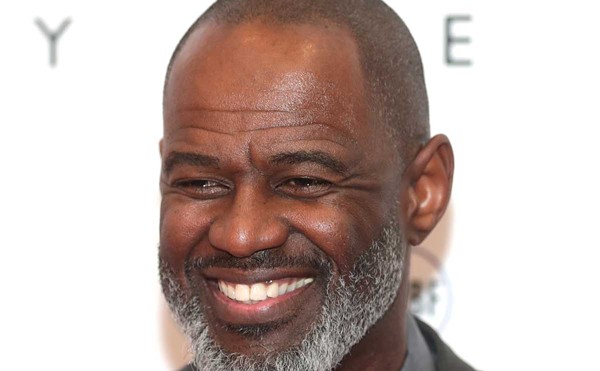No doubt the good gentlemen of the Game Show Network thought they couldn’t lose — buy up the libraries of defunct producers and impresarios, go to advertisers with a sheaf of flow charts showing the millions of twentysomething and thirtysomething hipsters basking in the blue glow of their lifelong baby sitter and then wait for the loot to roll in.
Ah, yes, there’s nothing like a sure thing. Yet when you start reanimating the ghosts of the past, they have a way of making present-day mortals look not so good. This tends to be true up and down the cultural index, from literary fiction to popular music to game shows. A wave crests, then it breaks. We, the rabble of the millennium, are drowning in backwashed foam.
So it is with a heady mix of wonder and woe that I plop down every night in my BarcaLounger to watch “The Match Game.” Here is ’70s television at its finest. The show was a burlesque, a shambling half-hour of middle-aged craziness realized on a lurid, slapdash set that screamed excess. Hedonism had been mercifully detached from the earnest self-righteousness of the flower children and left to go wild in the moneyed hills and dales of sunny California. On any given week, you could size up the six celebrity panelists who answered the deliberately bawdy, fill-in-the-blanks questions and pronounce them swingers. Only host Gene Rayburn, with his atrocious three-piece suits, erudite donkey smile and mod microphone, seemed to be cruising above the libidinal slipstream.
A trio of “stars” gave the panel a consistent spice. Brett Somers, a minor television actress, made the most of a Phyllis Diller-Lite getup of garish muumuus and oversized sunglasses. One could easily imagine her sipping lonely vodkas poolside in Brentwood. But keeping her spirits up was Charles Nelson Reilly. Unlike fellow queen Paul Lynde, who anchored “Hollywood Squares,” Reilly held nothing back, mincing and preening for the camera that constantly searched him out for an amusing cutaway. He and Somers had a marvelous chemistry, she the fag hag to his randy poofter.
It was the man on the bottom row who merits the hardest and fondest look. Richard Dawson had already made a name for himself on the ludicrous “Hogan’s Heroes.” Before contract disputes soured his mood in the last years of “Match Game,” Dawson delighted to no end. He was a marvelous mimic of American accents, playfully teasing cowpokes from Bakersfield and busty secretaries from Pensacola alike. Likewise, he was never thrifty with his laddish charms, perfectly honed and timed in the pubs and music halls of his native Britain. He was obviously intelligent, a favorite of contestants on crucial big-money questions. Moreover, he was never less than a gentleman, even in the later years when it was obvious he was holding his tongue. Dawson was a class act.
Little wonder producer Mark Goodson gave Dawson his own vehicle, “Family Feud,” a tag team partner of “Match Game” on the GSN. In his brilliant essay on the “Feud,” television critic Mark Crispin Miller describes Dawson’s signature entrance. He meanders downstage between the cheering Grubbs and Pfisters, as a much-loved drunk might join a raucous party thrown in his honor, and halts to do a spot of mellow shtick. And yet while Dawson thus evinces the authority of smooth decay, he also wears, incongruously, the uniform of high-paid middle management — the ample suit, the boutonnière, the glittering watch chain. He looks like some old Roman debauchee now working as a district manager for Burger King.
Miller goes on to argue that Dawson possesses an unusual and unhealthy sway over the contestants — they know how sophisticated he is, they know the potential bite of his silver tongue and they will do anything to prevent his ire, including permitting the obligatory kisses of their womenfolk.
What Miller fails to mention is the tragic dimension of Dawson. Here is the best of the ’70s forced to suck up to the worst of ’80s Reaganism — conformity, folksy conservative bromides about family and fidelity, mass-market survey research masquerading as quaint audience polls. The list goes on and your spirits sink.
Miller wrongly assumes that Dawson’s sangfroid is akin to the cheap irony of Letterman and Carson; for him, Dawson is a bullying arbiter of televisual cool, at once indulging and mocking the unhip enthusiasm of the contestants. To the contrary, Dawson seems to me sincerely congenial, a genteel host making the vulgar neighbors feel at home. He is not of television, merely on it — and, when the lights click off, you imagine him still as a man you’d like to have over for drinks. Only in his savage parody of himself in The Running Man does Dawson raise the specter of being less than a good and honest toastmaster.
Put simply, Dawson was too good for American television. After his successor on the “Feud,” Ray Combs, killed himself, Dawson came back for a swan song, a bit stouter, a bit more tanned, but everything about the show was tired. Except him. At his peak, he regularly sat in for Johnny Carson on the “Tonight Show,” constantly showing up the main man. Somewhere in the crazy meteor shower of rerun television, those too are back on the air.
That Dawson languishes on the supper club theater circuit, playing to the beef-and-booze set, says less about him than it does about us. We didn’t deserve him then. And even less now.
Timothy Dugdale writes about visual culture for the Metro Times. E-mail him at [email protected]




